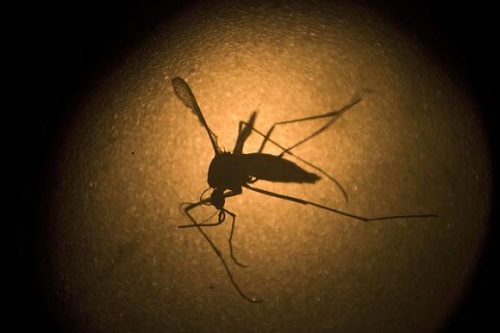Thailand Wary As Zika Cases Soar Close To 100
Source: asia.nikkei.com
Since the Zika virus first caught the world’s attention following one of the most serious outbreaks, in Brazil last year, Thai health authorities have been at pains to allay local fears that a similar outbreak could occur in the Southeast Asian country, which reported its first confirmed case of Zika in 2012.
But there has been a dramatic increase in the number of Zika cases since the beginning of 2016, with 97 reported across 10 provinces, after only five cases were reported on average each year since 2012.
Amnuay Gajeena, director-general of the Thai health ministry’s disease control department, admits the rising number of infections is a serious concern, although nowhere near the scale seen in countries such as Brazil.
“We are not in that much of a severe situation. You can look at the numbers. On average, compared to what’s happened in South America, I think [there is] a big difference,” Amnuay told the Nikkei Asian Review.
According to the World Health Organization’s latest report on Zika, 61 countries or territories had reported by June 30 ongoing cases of the virus, which is transmitted by the Aedes mosquito, the same mosquito that also transmits dengue, yellow fever and the chikungunya virus. Sexual transmission of the virus has also been reported in some cases.
The agency on Feb. 1 declared the Zika virus a “public health emergency of international concern.” This was in response to an emerging scientific consensus that the infection is linked to microcephaly, a birth defect causing babies to be born with abnormally small heads, and other neurological complications, including Guillain-Barre syndrome — a cause of facial palsy.
According to WHO’s latest statistics, Brazil has reported over 1,600 cases of microcephaly or other central nervous system malformations potentially associated with the Zika virus, with a handful of cases also reported in other countries, mainly in South America or the Caribbean.
Thailand has no reports of complications such as microcephaly or GBS associated with Zika to date, Waraluk Tangkanakul, a doctor at the disease control department, told the NAR. “I think the situation of the Zika virus [in Thailand] is under control,” she said.
Experts caution, however, that the number of domestic cases will likely increase as knowledge of the virus among clinicians and the general public grows.
“Now there is awareness of [the] Zika virus circulating in Thailand, I think there will be increased detection as a result of more specific diagnosis,” said Duncan Smith, a professor at the Institute of Molecular Biosciences at Mahidol University in Bangkok, who co-authored a recent article in medical journal The Lancet on the origins and spread of the virus.
“In other words, people were previously not looking for Zika virus — now they are, and I think they will find more cases,” he said.
Smith noted that some cases of Zika are likely to have been previously classed as dengue, a disease with similar symptoms including fever, muscle and joint pain, headaches and rash. Dengue is prevalent in Thailand and across Southeast Asia. Thailand experienced a surge in dengue cases in 2015, with around 140,000 cases reported.
Control measures
Potjaman Siriarayapon, a doctor who heads the Investigation and Public Health Emergency Response Unit in Thailand’s Bureau of Epidemiology, said health specialists were working to track and contain each instance of the Zika virus.
“In every province where we know there is a suspected or confirmed case we send a team from the central level to lead the control measures,” she told the NAR. “I’m not worried much about the places where we know the situation, but, in fact, it seems there are still a lot [of cases] ongoing without detection.”
Thailand’s health ministry has urged people to keep homes and public spaces clean, as well as cover or remove stagnant water so as to reduce potential breeding grounds for the Aedes mosquito. The health ministry said in June that it had “stepped up its monitoring, prevention and control activities to the highest level” and made it “mandatory to report cases of the disease in accordance with the Communicable Disease Act of 2015.”
Thai officials are likely conscious of the potential impact any widespread outbreak could have on the country’s lucrative tourism industry. At least three foreign tourists from Germany, Canada and Japan have caught the Zika virus while traveling in Thailand since 2013.
In February, Taiwan updated its official travel advice for Thailand, warning pregnant women to postpone trips to areas of the country where the Zika virus had been reported. The advisory came after a Thai national was diagnosed with the virus in Taiwan the previous month.
The three cases involving foreign travelers, along with seven others involving Thai nationals from March 2012 to July 2014, were documented in a paper published last year in the American Journal of Tropical Medicine and Hygiene. The authors of the paper, titled “Detection of Zika Virus Infection in Thailand, 2012-2014,” found the cases “provide evidence that ZIKV [Zika virus] is widespread throughout Thailand.”
While other communicable diseases such as malaria, tuberculosis and dengue are currently seen as posing a more pressing challenge to Thailand, given the links of Zika to serious health complications documented overseas, the disease will continue to demand the attention of health experts.
Richard Brown, a WHO technical officer in Thailand responsible for emerging infectious diseases, said the response by Thai health authorities so far has been adequate, based on the current information of “sporadic cases and no evidence to date of complications.”
“At present, when a case is detected, a good public health response is initiated, i.e. with education, enhanced surveillance locally to see if any additional cases have occurred and implementation of vector controls,” Brown told the NAR in an email.
“However, it will be important to maintain vigilance in the future for the occurrence of more sporadic cases.”

